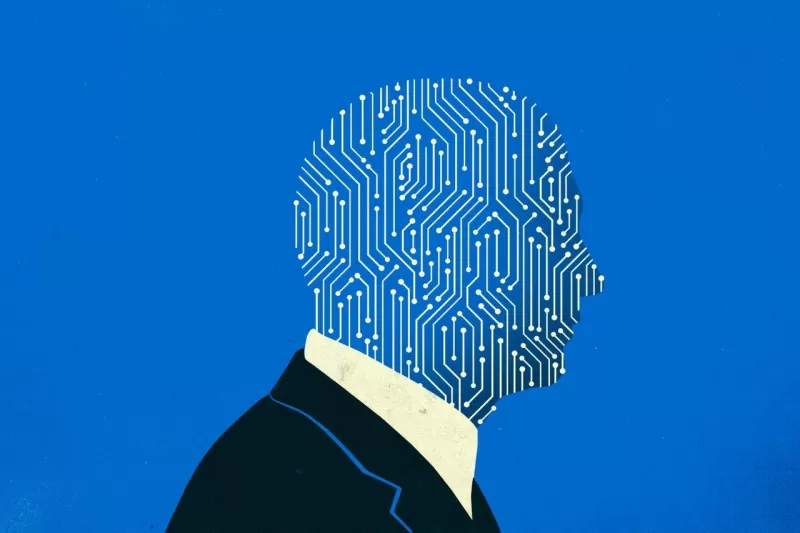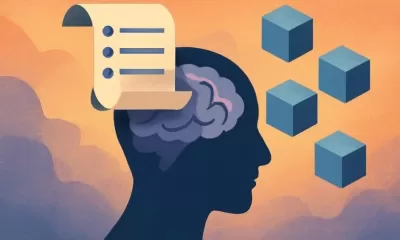AI Agents Surge: IT Departments Transform into New HR Units

Agentic AI: The Backbone of Modern Enterprise Systems
Agentic AI is transforming the landscape of connected enterprises, moving far beyond the realm of simple helper apps. These AI agents are becoming the driving force behind the microservices that underpin enterprise systems. As their use expands, IT departments are evolving into a sort of "human resources" for AI, handling the acquisition, onboarding, and management of these digital assistants much like HR manages human employees.
These insights emerged from a panel discussion at the recent Mobile World Congress, organized by Deloitte, which delved into the evolving role of AI agents within enterprises. Panelists drew parallels between agentic architecture and the rise of microservices, noting how both break down large, monolithic applications into smaller, more manageable and flexible units.
From Monolithic to Microservices
"Agentic AI is the next step in breaking apart and solving problems," explained Bryan Thompson, vice president for GreenLake product management at HPE. He highlighted the potential of agentic AI to be segmented into microservices, enabling a more targeted approach to problem-solving. "It's about leveraging these models to break them into specialized services," he added.
Fred Devoir, global head of solution architecture for telco at Nvidia, agreed, emphasizing how agentic AI helps in stitching together enterprise workflows. "We integrate components into a RESTful architecture," he said. "Nvidia optimizes these microservices, assembling them into blueprints that quickly deliver value or results."
Capabilities Beyond Traditional Microservices
Abdi Goodarzi, head of gen AI products, innovations, and new businesses for Deloitte, pointed out that agentic AI offers capabilities far surpassing those of traditional microservice architectures. "We've never had a technology that could ideate or execute independently," he noted. "This independent execution is truly the power of AI."
Agentic AI services take over many of the tedious tasks previously handled by humans, forming a parallel workforce managed by IT rather than HR. "It's the same concept as human capital management, but applied to AI agents," Devoir remarked. "The IT department now acts as HR for these agents, curating, setting guardrails, training, and fine-tuning them for specific tasks and integration with human workflows. It's a complex job, akin to HR but on a much deeper technical level."
Organizational and Cultural Shifts
The rise of agentic AI necessitates significant changes within organizations. Goodarzi highlighted the emotional aspect: "Humans have emotions, agents don't. How do we incorporate emotions into the execution of work? As work processes change, so must the culture, talent strategies, and the way humans and machines collaborate."
Challenges in Implementation
Implementing agentic AI within enterprises comes with its set of challenges, particularly around data management, trustworthiness, and talent. Goodarzi mentioned the heavy investment enterprises have made in organizing structured data. "They've built ERP systems and systems of record and action, but these often result in data silos."
Agentic AI can help address this by deploying agents where the data resides. "You bring the AI to the data," Devoir explained. "When you make a service call, it queries the data agents for a response and then collates that data into a model."
Trustworthiness is another critical issue. Goodarzi stressed the need to verify data and results: "Are you dealing with the right data? Are the results correct? Traditional technologies focused on transactional activities, but agentic AI is probabilistic. It provides the best probable answer based on its training and data digestion."
Trust in these AI agents is paramount: "Can you trust this agent? Is the data accurate? These are questions that need to be answered."
The Road Ahead
Despite these challenges, the potential of agentic AI is undeniable. Goodarzi concluded, "These are new concepts for enterprises, which has slowed adoption. But the capabilities are real, and the technology is advanced enough for use in enterprise production systems. I believe this year will see a significant uptake."
The journey to an agentic AI-powered enterprise is complex, but the rewards in terms of efficiency and innovation are substantial. As enterprises continue to navigate these waters, the role of AI agents will only grow more integral to their success.
Related article
 Manus Debuts 'Wide Research' AI Tool with 100+ Agents for Web Scraping
Chinese AI innovator Manus, which previously gained attention for its pioneering multi-agent orchestration platform catering to both consumers and professional users, has unveiled a groundbreaking application of its technology that challenges convent
Manus Debuts 'Wide Research' AI Tool with 100+ Agents for Web Scraping
Chinese AI innovator Manus, which previously gained attention for its pioneering multi-agent orchestration platform catering to both consumers and professional users, has unveiled a groundbreaking application of its technology that challenges convent
 Why LLMs Ignore Instructions & How to Fix It Effectively
Understanding Why Large Language Models Skip Instructions
Large Language Models (LLMs) have transformed how we interact with AI, enabling advanced applications ranging from conversational interfaces to automated content generation and programming ass
Why LLMs Ignore Instructions & How to Fix It Effectively
Understanding Why Large Language Models Skip Instructions
Large Language Models (LLMs) have transformed how we interact with AI, enabling advanced applications ranging from conversational interfaces to automated content generation and programming ass
 Pebble Reclaims Its Original Brand Name After Legal Battle
The Return of Pebble: Name and AllPebble enthusiasts can rejoice - the beloved smartwatch brand isn't just making a comeback, it's reclaiming its iconic name. "We've successfully regained the Pebble trademark, which honestly surprised me with how smo
Comments (10)
0/200
Pebble Reclaims Its Original Brand Name After Legal Battle
The Return of Pebble: Name and AllPebble enthusiasts can rejoice - the beloved smartwatch brand isn't just making a comeback, it's reclaiming its iconic name. "We've successfully regained the Pebble trademark, which honestly surprised me with how smo
Comments (10)
0/200
![JimmyJohnson]() JimmyJohnson
JimmyJohnson
 April 23, 2025 at 7:24:15 AM EDT
April 23, 2025 at 7:24:15 AM EDT
Os Agentes de IA estão totalmente remodelando os departamentos de TI! É como ver ficção científica se tornar realidade. Mas cara, a curva de aprendizado é íngreme. Ainda assim, é emocionante ver como eles estão transformando TI em unidades semelhantes ao RH. Mal posso esperar para ver o que vem a seguir! 🤖


 0
0
![GaryGonzalez]() GaryGonzalez
GaryGonzalez
 April 22, 2025 at 2:27:03 PM EDT
April 22, 2025 at 2:27:03 PM EDT
AIエージェントがIT部門を完全に変えています!SFが現実になるのを見ているようです。でも、学習曲線が急ですね。それでも、ITがHRのようなユニットに変わるのを見るのはワクワクします。次に何が来るのか楽しみです!🤖


 0
0
![GeorgeJones]() GeorgeJones
GeorgeJones
 April 22, 2025 at 3:02:45 AM EDT
April 22, 2025 at 3:02:45 AM EDT
AI 에이전트가 IT 부서를 완전히 바꾸고 있어요! SF가 현실이 되는 것 같아요. 하지만 학습 곡선이 가파르네요. 그래도 IT가 HR 같은 단위로 변하는 걸 보는 건 흥미로워요. 다음에 뭐가 올지 기대돼요! 🤖


 0
0
![RalphHill]() RalphHill
RalphHill
 April 21, 2025 at 10:15:12 PM EDT
April 21, 2025 at 10:15:12 PM EDT
AI Agents Surge é de tirar o fôlego! Parece que os departamentos de TI estão se transformando em unidades de RH da noite para o dia. A maneira como esses agentes de IA lidam com microserviços é simplesmente irreal. Mas às vezes parece muito técnico para mim. Ainda assim, é o futuro, certo? 🤯


 0
0
![RaymondWalker]() RaymondWalker
RaymondWalker
 April 21, 2025 at 3:48:05 AM EDT
April 21, 2025 at 3:48:05 AM EDT
¡AI Agents Surge es alucinante! Es como si los departamentos de TI se estuvieran convirtiendo en unidades de RRHH de la noche a la mañana. La forma en que estos agentes de IA manejan los microservicios es simplemente irreal. Pero a veces me parece demasiado técnico. Aún así, es el futuro, ¿verdad? 🤯


 0
0
![KevinAnderson]() KevinAnderson
KevinAnderson
 April 19, 2025 at 11:37:14 PM EDT
April 19, 2025 at 11:37:14 PM EDT
AI Agents are totally reshaping IT departments! It's like watching sci-fi come to life. But man, the learning curve is steep. Still, it's exciting to see how they're turning IT into HR-like units. Can't wait to see what's next! 🤖


 0
0

Agentic AI: The Backbone of Modern Enterprise Systems
Agentic AI is transforming the landscape of connected enterprises, moving far beyond the realm of simple helper apps. These AI agents are becoming the driving force behind the microservices that underpin enterprise systems. As their use expands, IT departments are evolving into a sort of "human resources" for AI, handling the acquisition, onboarding, and management of these digital assistants much like HR manages human employees.
These insights emerged from a panel discussion at the recent Mobile World Congress, organized by Deloitte, which delved into the evolving role of AI agents within enterprises. Panelists drew parallels between agentic architecture and the rise of microservices, noting how both break down large, monolithic applications into smaller, more manageable and flexible units.
From Monolithic to Microservices
"Agentic AI is the next step in breaking apart and solving problems," explained Bryan Thompson, vice president for GreenLake product management at HPE. He highlighted the potential of agentic AI to be segmented into microservices, enabling a more targeted approach to problem-solving. "It's about leveraging these models to break them into specialized services," he added.
Fred Devoir, global head of solution architecture for telco at Nvidia, agreed, emphasizing how agentic AI helps in stitching together enterprise workflows. "We integrate components into a RESTful architecture," he said. "Nvidia optimizes these microservices, assembling them into blueprints that quickly deliver value or results."
Capabilities Beyond Traditional Microservices
Abdi Goodarzi, head of gen AI products, innovations, and new businesses for Deloitte, pointed out that agentic AI offers capabilities far surpassing those of traditional microservice architectures. "We've never had a technology that could ideate or execute independently," he noted. "This independent execution is truly the power of AI."
Agentic AI services take over many of the tedious tasks previously handled by humans, forming a parallel workforce managed by IT rather than HR. "It's the same concept as human capital management, but applied to AI agents," Devoir remarked. "The IT department now acts as HR for these agents, curating, setting guardrails, training, and fine-tuning them for specific tasks and integration with human workflows. It's a complex job, akin to HR but on a much deeper technical level."
Organizational and Cultural Shifts
The rise of agentic AI necessitates significant changes within organizations. Goodarzi highlighted the emotional aspect: "Humans have emotions, agents don't. How do we incorporate emotions into the execution of work? As work processes change, so must the culture, talent strategies, and the way humans and machines collaborate."
Challenges in Implementation
Implementing agentic AI within enterprises comes with its set of challenges, particularly around data management, trustworthiness, and talent. Goodarzi mentioned the heavy investment enterprises have made in organizing structured data. "They've built ERP systems and systems of record and action, but these often result in data silos."
Agentic AI can help address this by deploying agents where the data resides. "You bring the AI to the data," Devoir explained. "When you make a service call, it queries the data agents for a response and then collates that data into a model."
Trustworthiness is another critical issue. Goodarzi stressed the need to verify data and results: "Are you dealing with the right data? Are the results correct? Traditional technologies focused on transactional activities, but agentic AI is probabilistic. It provides the best probable answer based on its training and data digestion."
Trust in these AI agents is paramount: "Can you trust this agent? Is the data accurate? These are questions that need to be answered."
The Road Ahead
Despite these challenges, the potential of agentic AI is undeniable. Goodarzi concluded, "These are new concepts for enterprises, which has slowed adoption. But the capabilities are real, and the technology is advanced enough for use in enterprise production systems. I believe this year will see a significant uptake."
The journey to an agentic AI-powered enterprise is complex, but the rewards in terms of efficiency and innovation are substantial. As enterprises continue to navigate these waters, the role of AI agents will only grow more integral to their success.
 Manus Debuts 'Wide Research' AI Tool with 100+ Agents for Web Scraping
Chinese AI innovator Manus, which previously gained attention for its pioneering multi-agent orchestration platform catering to both consumers and professional users, has unveiled a groundbreaking application of its technology that challenges convent
Manus Debuts 'Wide Research' AI Tool with 100+ Agents for Web Scraping
Chinese AI innovator Manus, which previously gained attention for its pioneering multi-agent orchestration platform catering to both consumers and professional users, has unveiled a groundbreaking application of its technology that challenges convent
 Why LLMs Ignore Instructions & How to Fix It Effectively
Understanding Why Large Language Models Skip Instructions
Large Language Models (LLMs) have transformed how we interact with AI, enabling advanced applications ranging from conversational interfaces to automated content generation and programming ass
Why LLMs Ignore Instructions & How to Fix It Effectively
Understanding Why Large Language Models Skip Instructions
Large Language Models (LLMs) have transformed how we interact with AI, enabling advanced applications ranging from conversational interfaces to automated content generation and programming ass
 Pebble Reclaims Its Original Brand Name After Legal Battle
The Return of Pebble: Name and AllPebble enthusiasts can rejoice - the beloved smartwatch brand isn't just making a comeback, it's reclaiming its iconic name. "We've successfully regained the Pebble trademark, which honestly surprised me with how smo
Pebble Reclaims Its Original Brand Name After Legal Battle
The Return of Pebble: Name and AllPebble enthusiasts can rejoice - the beloved smartwatch brand isn't just making a comeback, it's reclaiming its iconic name. "We've successfully regained the Pebble trademark, which honestly surprised me with how smo
 April 23, 2025 at 7:24:15 AM EDT
April 23, 2025 at 7:24:15 AM EDT
Os Agentes de IA estão totalmente remodelando os departamentos de TI! É como ver ficção científica se tornar realidade. Mas cara, a curva de aprendizado é íngreme. Ainda assim, é emocionante ver como eles estão transformando TI em unidades semelhantes ao RH. Mal posso esperar para ver o que vem a seguir! 🤖


 0
0
 April 22, 2025 at 2:27:03 PM EDT
April 22, 2025 at 2:27:03 PM EDT
AIエージェントがIT部門を完全に変えています!SFが現実になるのを見ているようです。でも、学習曲線が急ですね。それでも、ITがHRのようなユニットに変わるのを見るのはワクワクします。次に何が来るのか楽しみです!🤖


 0
0
 April 22, 2025 at 3:02:45 AM EDT
April 22, 2025 at 3:02:45 AM EDT
AI 에이전트가 IT 부서를 완전히 바꾸고 있어요! SF가 현실이 되는 것 같아요. 하지만 학습 곡선이 가파르네요. 그래도 IT가 HR 같은 단위로 변하는 걸 보는 건 흥미로워요. 다음에 뭐가 올지 기대돼요! 🤖


 0
0
 April 21, 2025 at 10:15:12 PM EDT
April 21, 2025 at 10:15:12 PM EDT
AI Agents Surge é de tirar o fôlego! Parece que os departamentos de TI estão se transformando em unidades de RH da noite para o dia. A maneira como esses agentes de IA lidam com microserviços é simplesmente irreal. Mas às vezes parece muito técnico para mim. Ainda assim, é o futuro, certo? 🤯


 0
0
 April 21, 2025 at 3:48:05 AM EDT
April 21, 2025 at 3:48:05 AM EDT
¡AI Agents Surge es alucinante! Es como si los departamentos de TI se estuvieran convirtiendo en unidades de RRHH de la noche a la mañana. La forma en que estos agentes de IA manejan los microservicios es simplemente irreal. Pero a veces me parece demasiado técnico. Aún así, es el futuro, ¿verdad? 🤯


 0
0
 April 19, 2025 at 11:37:14 PM EDT
April 19, 2025 at 11:37:14 PM EDT
AI Agents are totally reshaping IT departments! It's like watching sci-fi come to life. But man, the learning curve is steep. Still, it's exciting to see how they're turning IT into HR-like units. Can't wait to see what's next! 🤖


 0
0





























